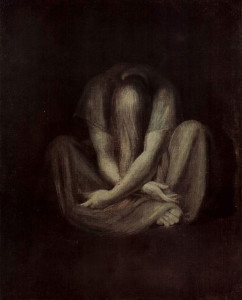This is quite long this evening as I'm sharing the meditation from yesterday evening's Celtic Wholeness and Healing Service.
The Cup of Joy, Henri J. M. Nouwen, Dutch Catholic priest:
The cup of life is the cup of joy as much as the cup of sorrow. It is the cup in which sorrows and joys, sadness and gladness, mourning and dancing are never separated. If joys could not be where sorrows are, the cup of life would never be drinkable. That is why we have to hold the cup in our hands and look carefully to see joys hidden in our sorrows. Can we look up to Jesus as to the man of joys? It seems impossible to see joy hanging with outstretched arms on a wooden cross. Still, the cross of Jesus is often presented as a glorious throne on which the King is seated. There the body of Jesus is portrayed not as racked by flagellation and crucifixion but as a beautiful, luminous body with sacred wounds. The cross of San Damiano that spoke to St Francis of Assisi is a good example. It shows the crucified Jesus as the victorious Jesus. The cross is surrounded by splendid gold; the body of Jesus is a perfect, immaculate human body; the horizontal beam on which he hangs is painted as the open grave from which Jesus rose; and all those gathered under the cross with Mary and John are full of joy. At the top we can see God’s hand, surrounded by angels, drawing Jesus back into heaven. This is a resurrection cross, in which we see Jesus lifted up in glory. Jesus’ words ‘When I am lifted up from the earth, I shall draw all people to myself,’ (John 12:32) refer not only to his crucifixion but also to his resurrection. Being lifted up means not only being lifted up as the crucified one but also being lifted up as the risen one. It speaks not only about agony but also about ecstasy, not only about sorrow but also about joy. Joys are hidden in sorrows! I know this from my own times of depression. I know it from living with people with intellectual disabilities. I know it from looking into the eyes of patients, and from being with the poorest of the poor. We keep forgetting this truth and become overwhelmed by our own darkness. We easily lose sight of our joys and speak of our sorrows as the only reality there is. We need to remind each other that the cup of sorrow is also the cup of joy, that precisely what causes us sadness can become the fertile ground for gladness. Indeed, we need to be angels for each other, to give each other strength and consolation. Because only when we fully realize that the cup of life is not only a cup of sorrow but also a cup of joy will we be able to drink it.
I feel this mixture of joy and sorrow, of all that we are and all that life is, is contained within the Eucharist. With each communion we remember the final days of Jesus’ life and celebrate his Resurrection.
Richard Rohr, American Franciscan Friar and Catholic priest says this of the Eucharist:
The Eucharist offers one focused moment of truth, showing that the Christ and this ordinary bit of elemental bread are one, and therefore the spiritual and the material can apparently coexist. Struggle with that, resist it, fall in love with it, eat it. You can't just think about it rationally in your mind. Spiritual things are known in a whole-body way. You know them with your body, heart, soul, and mind all operating together. In this mysterious sacrament of Eucharist, you eat the bread; it becomes one with you; you become one with all those around you who are the same Body of Christ. It's a corporeal, cellular knowing. The bread is for the sake of the people, it is food for the sick and weary, a medicine for the soul to let people know that they are what they eat!
As we move towards our Eucharist this evening, remember that in it we share Jesus’ joy and sorrow and he shares in ours. We offer all within us which needs healing and unity, both with Christ and with each other. We are one in the body of Christ, we drink from the cup of joy knowing sorrows still lie ahead, but also knowing that the sadness of Good Friday is always following by the joy of Easter Day.

Scripture
So Jesus said to them, ‘Very truly, I tell you, unless you eat the flesh of the Son of Man and drink his blood, you have no life in you. Those who eat my flesh and drink my blood have eternal life, and I will raise them up on the last day; for my flesh is true food and my blood is true drink. Those who eat my flesh and drink my blood abide in me, and I in them. Just as the living Father sent me, and I live because of the Father, so whoever eats me will live because of me. This is the bread that came down from heaven, not like that which your ancestors ate, and they died. But the one who eats this bread will live for ever.’
John 6:53-58






























